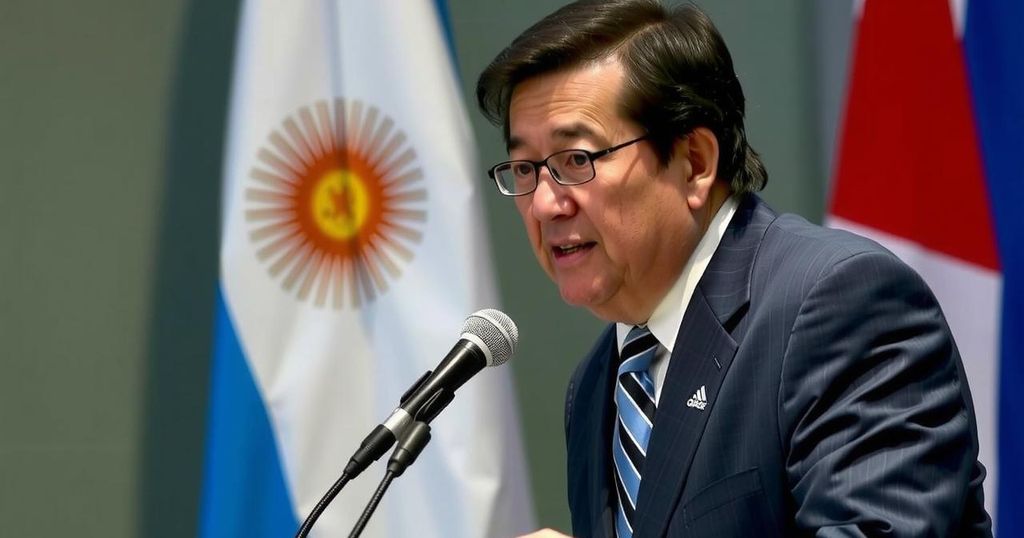Milei Dismisses Foreign Minister Following Vote on US Embargo Against Cuba
Argentina’s President Javier Milei has fired Foreign Minister Diana Mondino after the country supported a UN resolution to end the US embargo on Cuba. This marks a shift in Argentine foreign policy, distancing itself from US and Israeli positions. Gerardo Werthein is appointed as the new foreign minister. Only the US and Israel opposed this resolution, while diplomatic implications for Argentina’s stance on the Falkland Islands are considered.
On Wednesday, President Javier Milei of Argentina announced the dismissal of Foreign Minister Diana Mondino following the nation’s vote in favor of a United Nations resolution aimed at lifting the longstanding United States embargo on Cuba. This decision signifies a notable deviation from Argentina’s historic alignment with the positions of the United States and Israel, as only these two nations opposed the resolution amidst a majority of 186 countries supporting it. The newly appointed Foreign Minister, Mr. Gerardo Werthein, who previously held the position of Argentina’s ambassador to the United States, will now take on this pivotal role. The vote reflects a shift in Argentine foreign policy under Milei’s administration, which has traditionally aligned against such measures targeting Cuba. Immediately subsequent to Mondino’s dismissal, Milei engaged with social media to share sentiments from a lawmaker who praised the government for its stance against supporting authoritarian regimes, stating, “Viva CubaLibre.” Notably, foreign ministry officials suggest that despite the diplomatic awkwardness of opposing the US and Israel, it may be strategic in securing support from Cuba and its allies for Argentina’s claims over the Falkland Islands. This event underscores the complexities of diplomatic relations in international politics, particularly for countries navigating the diverse influences of global dynamics.
The United States embargo on Cuba, in place since 1962, has been a contentious issue in international relations. The embargo was established during the Cold War and reflects ongoing tensions between the US and Cuba, particularly concerning Cuba’s communist government. Historically, many nations, including Argentina, have opposed the embargo, supporting Havana in various international forums. Recently, the political climate has evolved, particularly with new administrations which may choose to reassess longstanding foreign policy commitments, aligning more closely with global diplomatic practices. Javier Milei’s recent election as president has brought forth changes in Argentina’s foreign policy direction, prompting significant actions, such as the dismissal of a cabinet member over divergent voting positions.
In conclusion, President Javier Milei’s decision to terminate Foreign Minister Diana Mondino following Argentina’s vote to lift the US embargo on Cuba illustrates a significant shift in the nation’s diplomatic policies. This action not only highlights the complexity of international relations but also reflects how internal political dynamics can influence foreign policy decisions. As Argentina navigates its relationships with both the United States and Cuba, the ramifications of this decision will likely play a vital role in shaping future diplomatic engagements.
Original Source: www.france24.com




Post Comment